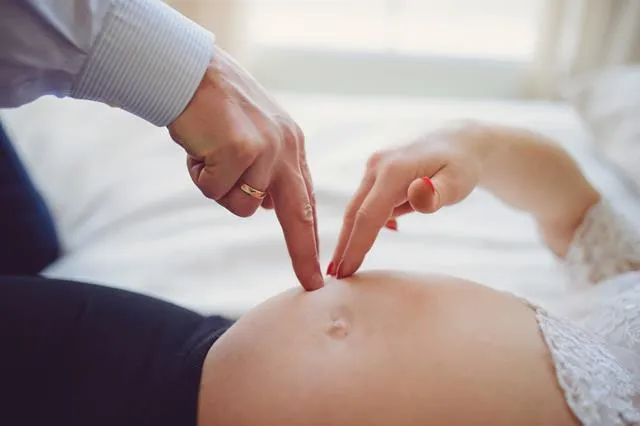The SARS-CoV-2 virus, commonly known as coronavirus, which causes covid-19 disease, has been attacking continuously since 2019. It is particularly dangerous for people who are ill, elderly and have weakened immune systems. The symptoms it causes are similar to the flu. Covid infection in pregnancy is as dangerous as in the elderly. To date, it has not been confirmed whether the disease passes to the fetus. Research in this aspect is still ongoing. However, the virus can harm the mother and significantly weaken her body.
The symptoms of covid-19 in pregnancy are the same as in other patients. The effect of the virus resembles that of a cold or the flu, but it also attacks the lung parenchyma, often causing massive inflammation, giving some infected people little chance of survival. It is not uncommon for them to require oxygen therapy and treatment under the guidance of specialists.
What is SARS-CoV-2?
SARS-CoV-2, commonly referred to as coronavirus, is a mutating and incompletely understood virus that causes flu-like symptoms. The disease caused by it was named covid-19. The first infections with it were detected in China in late 2019. It deprived many residents of their lives and rapidly moved to other continents. The risk of contracting SARS-CoV-2 is still ongoing, and there are more and more patients with newer mutations of the virus. Many patients require mechanical ventilation because the infection has caused acute respiratory failure.
Covid-19 is transmitted by the droplet route, mainly through sneezing and coughing, which is very intense when infected. Unfortunately, it is not present in all patients, which complicates the situation greatly. A cluster of people in whom coronavirus produces no symptoms have no idea that they are infected. In this way, they transmit SARS-CoV-2 to other people.
Is it possible to contract coronavirus during pregnancy?
Unfortunately, yes. Pregnant women, like the elderly, are particularly vulnerable to infection and more severe. Their bodies are going crazy due to hormonal changes, and the immune system is weakened. Currently, new cases of illness among pregnant women are confirmed every now and then, which do not always end in recovery, due to the acute course of the infection. Many pregnant patients are also struggling with other illnesses, with an increased risk of complications if they become infected.
In the medical community, weight problems, especially extreme obesity, are said to be a predisposing factor for a more severe course of covid-19. Adding to this, pregnancy puts a strain on the patient’s respiratory and cardiovascular systems, making them function less well than in healthy people. This is only speculation, but it has long been known that excessive body weight has a significant impact on the proper functioning of the body.
How does coronavirus in pregnancy affect a woman?
Coronavirus in a pregnant woman can be fatal. A stressed and hormonally altered body may not be able to withstand infection. For this reason, pregnant women are advised to take extra caution during a pandemic. They should avoid large concentrations of people and move around wearing masks. A very important rule is hand hygiene. Despite the risks, a pregnant woman should not be afraid to go outside. Mental comfort is as important as avoiding disease. Sticking to the rules and adapting to the prevailing restrictions should help you avoid getting sick.
Scientific studies indicate that covid-19 in pregnancy increases the risk of premature birth, spontaneous miscarriage and stillbirth of newborns. Observations so far show that the virus does not cause birth defects in the fetus, and there is probably no placental transmission of the virus either. However, research is still ongoing around the world, and knowledge about the impact of SARS-CoV-2 infection on pregnancy is regularly updated.
What effect does covid have on the fetus during pregnancy?
A pregnant woman’s coronavirus has no effect on the fetus, although conflicting information has been reported many times. However, studies conducted make it clear that a baby in the womb cannot become infected from a sick mother. The findings were reported in the scientific journal The Lancet. Nine pregnant women infected with coronavirus who gave birth by cesarean section took part. The effect of maternal infection on the developing fetus was studied, but no pathology was found in this regard. Both amniotic fluid, cord blood and breast milk were tested. No virus was found in any of the material, proving that it is not transmitted via the transplacental or perinatal route.
The purpose of the study was to observe how and whether coronavirus in pregnant women affects the fetus. The most important issue was to determine whether a woman infected with the virus could safely give birth naturally and whether the baby would be at risk of complications after delivery. Nothing of the sort has been found, although there have been a few confirmed cases of vertical transmission recently, but more research is still needed in this area, as it is not known exactly how the infection occurred. Undoubtedly, until the number of infections decreases, this should be constantly monitored.
Breastfeeding after delivery also does not transmit the virus to the baby. The only risk is close contact between the sick mother and her newborn, which can transmit the pathogen. This resulted in infection in several newborns, but the food was not to blame. This one is completely safe and recommended for a newborn.
Symptoms of coronavirus in pregnancy
A pregnant woman develops coronavirus in the same way as any other patient. Its incubation lasts about a week, with symptoms not always manifesting or proceeding with the need for hospitalization. The characteristic symptom of the virus is usually loss of smell and taste. Weakness and worse mood is often accompanied by dry cough, shortness of breath and often high fever. While the coronavirus itself poses no threat to the developing fetus, the elevated body temperature of the mother unfortunately does. It is particularly dangerous during the first trimester of pregnancy. In addition, the consequence of a developed infection can be severe pneumonia and acute respiratory failure resulting in death, so serious symptoms of infection should not be underestimated.
When to see a doctor with coronavirus in pregnancy?
Reporting to a facility and a doctor on suspicion of SARS-CoV-2 virus infection is not advisable. A pregnant woman, if she has any worrisome symptoms, should call the medical hotline at 800 190 590 or call her pregnancy doctor to get a referral for a covid-19 test. It is now also possible to sign up for it online. The free test also covers the uninsured. Its cost is covered by the state budget.
The coronavirus test is not pleasant, but not very painful either. Material for the test is taken from the nasal cavities, which is not comfortable for everyone. Unfortunately, it is necessary to diagnose or exclude the presence of the virus in the body. Each patient, until the result is received, is automatically quarantined for three days. If positive, it is extended for another ten days.
How to avoid contracting coronavirus during pregnancy?
Currently, the main means of protection against severe covid-19 is vaccines. As with other people, the qualification of pregnant women for vaccination should be carried out individually by qualified medical personnel. Due to the much higher risk of severe infection, premature birth and stillbirths, vaccination is now recommended not only during pregnancy, but also if it is planned in the near future. While some experts recommend vaccination only after the first trimester of pregnancy, when the greatest risk of miscarriage or other pregnancy disruption has passed, this is not supported by scientific research. Vaccination for covid-19 is not mandatory, but recommended, and the decision to vaccinate is left to the mother-to-be.
In order not to expose a pregnant woman to the disease, it is advisable to avoid large gatherings of people. This is difficult, especially if the patient has other school- or preschool-aged children who may be carriers of the virus. In such situations, the pregnant woman must be especially careful in her interactions with them, take care of hand hygiene and antisepsis, and when going outdoors, protect herself with a mask. Her weakened immune system makes her extremely susceptible to infection, so she should not disregard the prevailing rules and implemented restrictions.
Rate this article:










